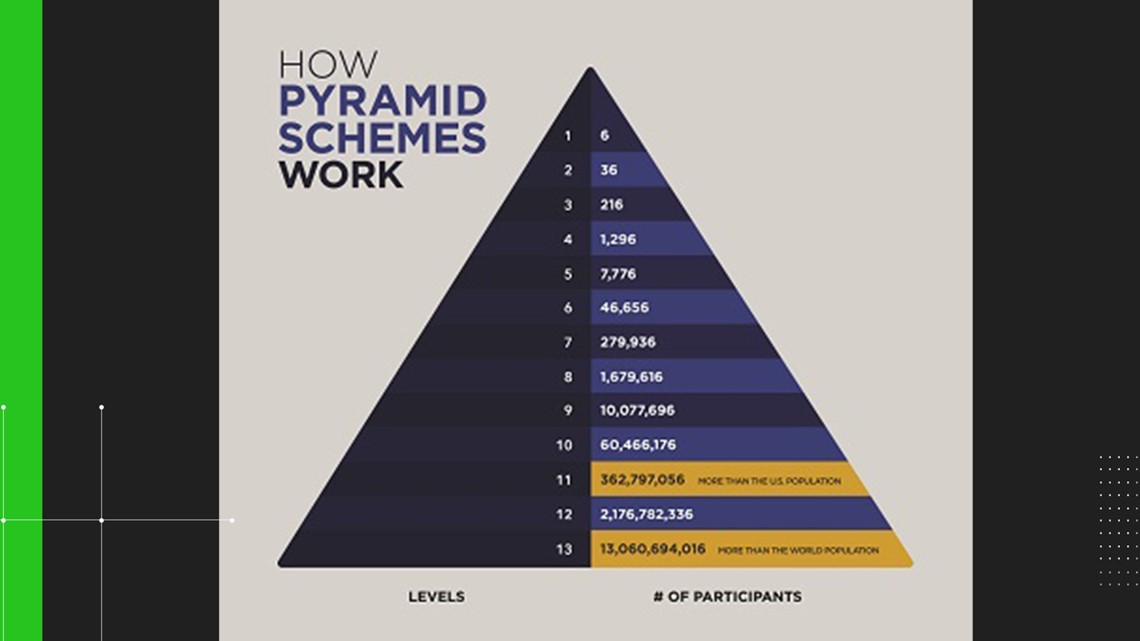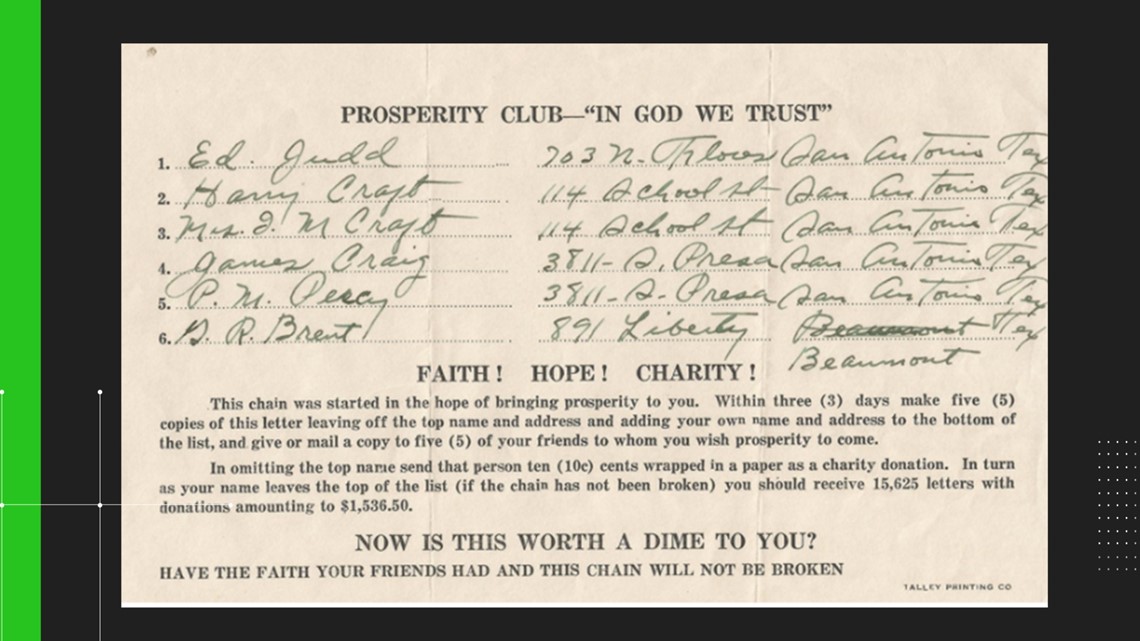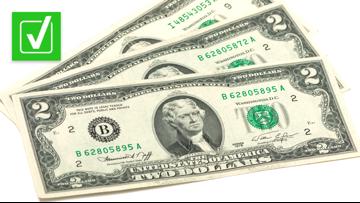Whether it’s on Facebook, Instagram or Twitter, you may have seen the following message making the rounds online, claiming you can get free books if you participate in an international literary exchange:
“I’m looking for people to participate in a huge book exchange. You can be anywhere in the world. All you have to do is buy your favorite book (just one) and send it to a stranger (I’ll send you their information in a private message). You’ll receive a maximum of 36 books back to you, to keep. They’ll be the favorite books from strangers around the world.”
Other variations of this claim have appeared for years, like the “secret sister gift exchange” – which has been labeled a scam by the Better Business Bureau. But is it safe to participate, or are you breaking the law?
THE QUESTION
Can participating in social media gift exchanges get you into legal trouble?
THE SOURCES
- Wisconsin Department of Agriculture, Trade and Consumer Protection
- The Federal Bureau of Investigation
- Attorney Douglas Brooks, advisor to the Pyramid Scheme Alert watch group
- The U.S. Securities and Exchange Commission
- Stacie Bosley, associate professor of economics at Hamline University
- Robert FitzPatrick, author of “Ponzinomics: The Untold Story of Multi-level Marketing,” expert witness in pyramid scheme cases, and president of the Pyramid Scheme Alert watch group
- Better Business Bureau
- The United States Postal Inspection Service
THE ANSWER
Not only is it highly unlikely that you’ll get 36 books back, our experts also say the message shares commonalities with classic pyramid schemes and data grabs, and participating in those can open the doors for legal repercussions under state anti-pyramid scheme laws.
Physically sending the books in the mail can be considered a form of gambling, and participants can also be fined for mail fraud. You could also be required to pay restitution to victims, engage in community service or be charged with felonies depending on the severity of the crime and the state you live in. On top of that, our experts warn that participating in online exchanges can leave you susceptible to leaking your private information online or falling for other more nefarious schemes that take your data.
WHAT WE FOUND
The Federal Trade Commission and the Securities and Exchange Commission label pyramid schemes, which include viral social media gift exchanges, as “a form of investment, (illegal in the US and elsewhere) in which each paying participant recruits further participants, with returns being given to early participants using money contributed by later ones.” The agencies warn that pyramid schemes can often be disguised as multi-level marketing scams, camouflaging as products that require a buy-in, like leggings, gift-exchanges or hair products.
In the case of the social media book exchange, that initial investment would be the price of one book. What you’re promised in return is up to 36 books. In order to receive 36 books you would have to recruit six of your friends to participate, and they would also have to find six followers of theirs to participate and send books, which our experts say isn’t guaranteed.
“The math says that if you put in a book, you can get more than one book or many books back,” says Stacie Bosley, an associate professor of economics at Hamline University in Minnesota. "But other people are losing, because books don't have babies, and there are not just magical books that can materialize forever. It’s a deceptive practice at heart.”
When the classic structure of a pyramid scheme is visualized, the number 36 is found in the second tier of the pyramid scheme, as listed in the image below. The third level would be multiplying how many of those 36 new people could also recruit six new followers, making the total 216 new people, and so forth. The final level would require more than 13 billion people to participate, which is more than the current world population.


Beyond being risky, the Better Business Bureau warns that pyramid schemes and gift exchanges are also illegal in the United States and Canada, listing jail time, fines and potential lawsuits as potential repercussions for participants and organizers. The exchanges can be considered forms of gambling, violating U.S. lottery laws.
If you do decide to purchase a book and mail it, the United States Postal Inspection Service warns that the same federal law that prohibits lotteries also applies to chain letters and exchanges. The book would be considered the payment or prize sent through the mail.
“Even if the chain letter itself is not mailed, as long as the payment or prize is sent through the mail the entire scheme is illegal,” reads a warning from the Wisconsin Department of Agriculture, Trade and Consumer Protection on gift exchanges.
Robert FitzPatrick is the author of “Ponzinomics: The Untold Story of Multi-level Marketing,” an expert witness for pyramid scheme cases, and the president of the Pyramid Scheme Alert watch group. He told VERIFY that the book exchange is just “one tiny manifestation of a much larger phenomenon,” saying that physical chain letters where people would put a dime in an envelope and were told it would increase by the hundreds were a starting point for people to use the postal service for schemes as early as 1935.
(The scam, dubbed the ‘Send-A-Dime’ or ‘Prosperity Club’ letter, overwhelmed postal services in Denver before hitting other post offices across the U.S.)


“If you got a certain number (from the envelope), all the money from all those people would come back to you,” FitzPatrick said. “It’s a similar scheme, but dressed up now as a sales business for MLMs and now to smaller forms like this book club…. I usually tell people, frankly, whether or not it’s illegal is almost irrelevant. How many things in your life do you have to ask if it’s legal or not to participate?”
Bosley agreed, saying if it sounds too good to be true, it likely is, and that using the mail service to continue these scams is illegal, even if it’s harmless.
“Whether it's money, whether it's books, whether it's wine, people might not know that with something like this book exchange, it's actually considered mail fraud,” she said. “Because you're perpetrating this fraud using the U.S Postal Service, or mail courier, and it’s illegal. People don't tend to know it, it's just in our daily feeds…. I’d like to think if they knew that, they wouldn’t be so keen to participate.”
States have varying degrees of anti-pyramid scheme laws on the books. For example, in Pennsylvania, there are three different definitions of a “Chain-Letter Plan," “Pyramid Club" and “Pyramid Promotional Scheme,” with violators potentially getting business licenses revoked, paying restitution to the victims and community service depending on the crime and listing chain letters asking for $25 or more as illegal. In Arizona, it’s a felony to "establish, operate, advertise or promote a pyramid promotional scheme.” In Florida, the penalty for such a crime starts as a first-degree misdemeanor for those soliciting over $100 and goes up depending on the severity of the crime.
Attorney Douglas Brooks told VERIFY that while smaller gift recruits like the book exchange might be harder to prosecute because the financial losses are often much smaller than major frauds committed by large scale companies, participating can still be illegal.
"With the pure pyramid scheme, where all you're doing is sort of putting out some money with the expectation that you're going to receive something back...whether it's $10, or a book, shouldn't really make a difference,” says Brooks. “It may very well violate pyramid scheme laws.”
The rise of social media and new technology has also made it easier to disguise pyramid schemes, changing the act of mailing physical letters to new forms of “free” payments or products on social media.
"The medium has changed, but the message is still the same,” says Brooks. “But absolutely, yes, they've gotten very sophisticated at using all of the tools that are available for these. Every platform that you can think of, you’ll see these solicitations.”
All of our experts agree – while the price of one book might not seem too hefty, the real cost of participating in schemes like the book exchange is the cost of giving up your information.
“It doesn't seem like there's a lot of loss, maybe a $10 book or $20 book,” says FitzPatrick. “It's harder to get a lot of attention on what the consequences of sharing just a book are. But the idea that we're trying to share with people is that maybe it's a data grab, or maybe it's someone sifting for your information. If you do something as harmless as a book exchange it can open you up for further trouble.”
Exchanges like this one also open the potential for someone to collect your personal data and sell it to criminals. Giving your address for books to be sent, coupled with your first name – or in some cases, financial information for someone to buy a book on their own – to people you don’t know well online is never a safe idea. Bosley says the exchange could also be a “sifting” device, where scammers can see who is likely to share posts like this and target their social media pages or emails more often than others.
“People pay a lot of money for the contact information of people who are more likely to be vulnerable to scams,” she told VERIFY. “This could be a sifting device for the people who are more vulnerable to other higher stakes, frauds. The last thing you'd want to do is put your name and your contact information in that kind of system. There are some cases I have seen where people would pay $40 a lead for just a name like that.”
It can also make you susceptible to more nefarious scams going forward.
“When people participate in more camouflage pyramid schemes like this, they get used to this notion that it's perfectly valid to contribute something and then go recruit people, and I want to reiterate that these [pyramid schemes] can come at you in a lot more complicated forms,” Bosley said. “So if you can't stop yourself from participating in this version of a scheme, it's very likely, again, that your own brain will make it seem appropriate when it comes in another form.”
Brooks agreed, saying it can be easy to fall for the gimmicks when the cost to play is relatively low.
"This is limited to the cost of the book, but my concern would be, you know, next month it’s going to be another book or 50 bucks or 100, you know…how much are you going to put into this for?” Brooks said. “Because once they've got you sort of hooked on something fairly cheap, then there's some psychological factors that come into play that may encourage you or induce you to keep on with it, because maybe it didn't work out this time, but maybe it'll work out next time.”
How can you decipher what’s likely a pyramid scheme and what’s real? Our experts say to look out for three general criteria:
- Is it an endless chain?
- Do you have to pay to play?
- Is there any type of recruitment involved?
“Chain letters actually evolved over time and they’re still around, usually through email, and often they don't involve any money at all,” says FitzPatrick. “They're things like ‘say a prayer and then spread it’ or pass on this poem and you'll have good luck, and if you don't, you'll have bad luck. That's not illegal, and it’s innocent. It's silly, because the chain always breaks anyway no matter what. But you didn't pay anything. But the moment you pay, that's when it changes. The moment you pay for something and start promising a return, that's when it moves into the area of fraud.”
In 2019, Bosley’s lesson plan on “How to Spot A Pyramid Scheme” was translated to a TED Talk, where it has since gained almost 5 million views.
So while you might actually receive a book in return and it might not seem too nefarious, be wary of social media exchanges that promise lofty returns. As for the books, our experts say to play it safe.
“My advice as far as the book scheme goes?” Brooks said. “Buy a book, read it, and keep it or give it to a friend. But don't, don't get involved in this thing.”













